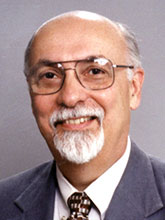With Dr. Bruce Hartung
The June “Pressure Points” addressed questions from three lay members wondering how they might support their new church workers. This month’s column views the topic from the other side of the coin — how a new pastor might best begin ministry with his first congregation.
Soon to be ordained and installed through my first call and to my first congregation, I will begin my ministry as a pastor. I’d like to hear some of your thoughts about how I can best begin my ministry with my new congregation. Actually, I am somewhat anxious about my beginning there — with new relationships and a new place.

May the Holy Spirit profoundly bless your ministry. Congratulations on your upcoming ordination and installation.
I really like Dietrich Bonhoeffer’s suggestion in Life Together, that the first duty we have to each other is to listen. Of course, we preach and teach. But we also need to be able to listen to people in order to get to know them in empathic ways. And our first duty to God is to listen to Him by studying His Word.
I also like the advice given in Woolever and Bruce’s Beyond the Ordinary: 10 Strengths of U.S. Congregations. Focus on the positives that both your people and your parish are doing well. In short, begin to build a culture of appreciation of both people in your parish and of the parish as a whole. Many folks concentrate on fixing what they perceive to be wrong. Rather, start by appreciating what is right.
Not long ago, I posed your request for how to begin ministry to a group of recent seminary graduates during a three-day retreat that was part of their PALS (Post-Seminary Applied Learning and Support) experience. Most in this group were at least two years into their ministry, and many were three years into it. Thanks to their willingness to share, here are several of their suggestions:
- “Love God, love your family, love the church — in that order.” In other words, have no other gods before God.
- “Be involved in your community. This includes attending school events that involve children of parishioners.”
- “Interact with members in settings other than the church and with the community at-large.”
- “Find a modern-day Barnabas who will remind you that the work of the church is not the Lord of the church.” Do not let your work be your god. The Triune God is your only God.
- “Find safe spaces and people (such as a mentor or spiritual director) for sharing your struggles.” Add to this a confessor with whom you do confess your specific sins and receive the forgiveness of Christ.
- “Join one community group that is not faith-based, but that matches your interests. This also should apply to pastors’ wives.”
- “Take Jesus seriously to ‘come with me by yourself and get some rest.’ And take Peter seriously, when he let go of the opportunity to wait tables and made a point to devote himself to Scripture and prayer.”
- “Build at least one close friendship in the church with an individual or couple, and invite them to your home and to do things with you as friends. At least one close friendship in the church is critical.”
- Find (or keep) a good administrative assistant/secretary to whom you can delegate administrative tasks.”
- “Be patient. The Church — local and catholic — did not get to where it is in a short time. It is the Holy Spirit who calls, gathers, enlightens and sanctifies the whole church; we cannot do more than Him.”
Keep on asking good questions. The themes of these responses from my colleagues include relationship building, community activity and attention to care of self, spouse and family — all built around a prayerful life centered in Christ and the power of His Gospel.
Also, join your regional PALS group. Originally conceived through the former Commission on Ministerial Growth and Support, PALS brings together pastors, spouses and often (as in this case) families to study, converse, share and be together. I was richly blessed by being with this group of eight pastors, their facilitating pastor, eight spouses and their many children.
The Rev. Bruce M. Hartung, Ph.D., is professor of Practical Theology at Concordia Seminary, St. Louis. He can be reached at hartungb@csl.edu.




